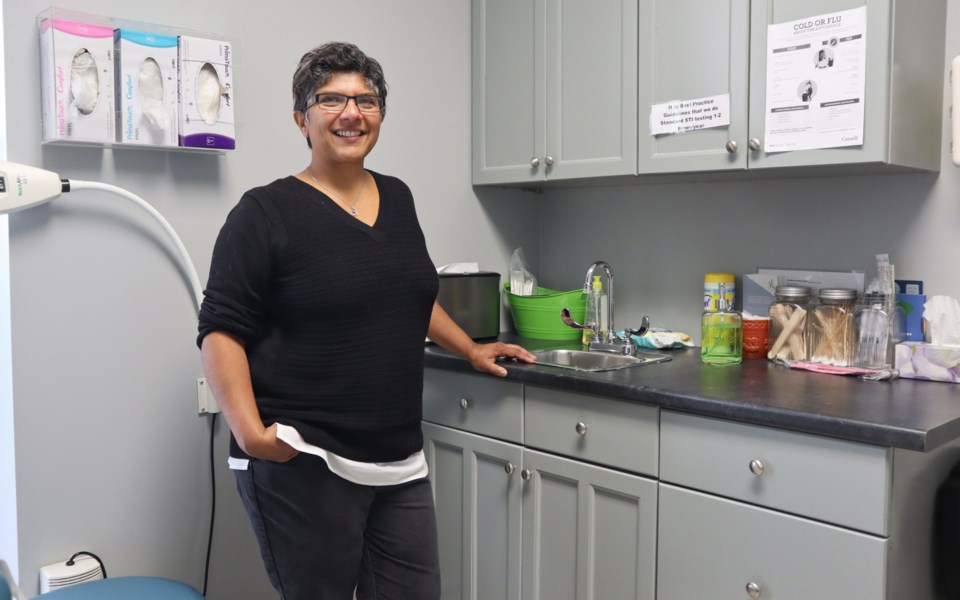Gender Affirm Guelph will soon be offering a new program to help support the health care needs of the area's transgender and non-binary community.
Starting Oct. 14, the gender affirming clinic will provide patients access to hormone initiation and management, surgery referrals, education, counselling and support to the Guelph region.
Residents do not need a referral to access care from the program, but they will need to book an appointment.
“It’s something I have thought about personally for many years ... Wanting to help somehow increase the care for trans folk in our community,” said Dr. Ashifa Jiwa, a family and emergency physician at Guelph General who will be providing treatment through the program.
“The appointments I’ll be booking (in the beginning) will be longer than you normally would have with a physician,” said Jiwa, “to allow me to really get to know the patients and to offer as much education and support as I’m able to offer …. lots of shared decision making in care and find out what the patient's goals are, and lots of discussions around medication and side effects.”
The program is a partnership between Gender Affirm Guelph, ARCH and the Guelph Community Health Centre (CHC). While both ARCH and Guelph CHC also offer gender-affirming care, both organizations currently cannot take on anymore patients as they have reached full capacity.
Now with the gender-affirming clinic opening, more residents in need will be able to access services. The program will be run out of the ARCH clinic on Wednesdays and all services provided will be covered by OHIP.
Besides Jiwa, a part-time social worker from the Guelph CHC will help out with education, counselling and administrative tasks.
“That (the social worker) is very key to the program. Because there are a number of changes that come into people’s lives and challenges when they decide to take some hormonal or surgical steps in their transition… Also helping to navigate the large number of forms that can accompany, for example, when someone wants to change their name legally or their documents legally.” said Jiwa.
To be as accessible as possible, the clinic will not be providing general or family care.
“There are a large number of people from Guelph and the surrounding area, who are trying to access care, and have been unsuccessful in trying to find a provider,” said Jiwa. “There’s also likely a number of people who are travelling to receive their care … people who are already well into their transition, and would like to move that service closer to home.”
While this program will play an important role in serving the transgender community, it is not a permanent solution.
“Ideally, 10 years down the road, we would see a clinic like this being redundant and not necessary, and have people’s own family doctors being comfortable in providing this care,” said Jiwa.
According to her, gender-affirming care, like hormone therapy, falls within the realm of family care. However, stigmas around gender-affirming care may prevent a physician from providing treatment.
“I think a lot of family doctors aren’t comfortable, for various reasons, in providing hormone replacement therapy to trans people,” said Jiwa, “Which is very unfortunate, as it falls very much in the scope of family care.”
Transphobia not only affects access to treatment, Jiwa said it can also affect how comfortable or safe a patient feels to continue seeking out care.
“There is transphobia in healthcare, just like there is in every part of the world or part of life,” said Jiwa, “Perhaps due to repeated negative experiences, many trans people are hesitant to bring up their gender identity with their primary care provider or with their family doctor.”
Jiwa adds the ability to access gender-affirming care is not only important to their health, but also for their well-being.
“Access to trans care is a huge piece of tran’s people’s quality of life and mental health,” said Jiwa, “The impact on people’s lives of being unable to access care and the extreme discomfort that it causes within them is substantial, and has a huge impact on their quality and length of life due to suicidality.”
“It goes beyond what somebody wants or prefers. This is a deep identity that many people came out of the womb with ... to live with that stigma, the stereotypes, and the transphobia they face. The difficulty finding jobs. The difficulties with forging relationships and finding support, and the bullying at school.
"These things over time can wear them down a person’s mental health, and access to these kinds of services is important in that situation.”
While the medical community has seen many social changes in the past decade, Jiwa said she hopes to see more doctors offer gender-affirming care in the future.
“The gold standard would be for each individual physician in every community across Canada to provide trans care to their own patients, just like they provide care for every other issue, and for it to be integrated into every other care.”
